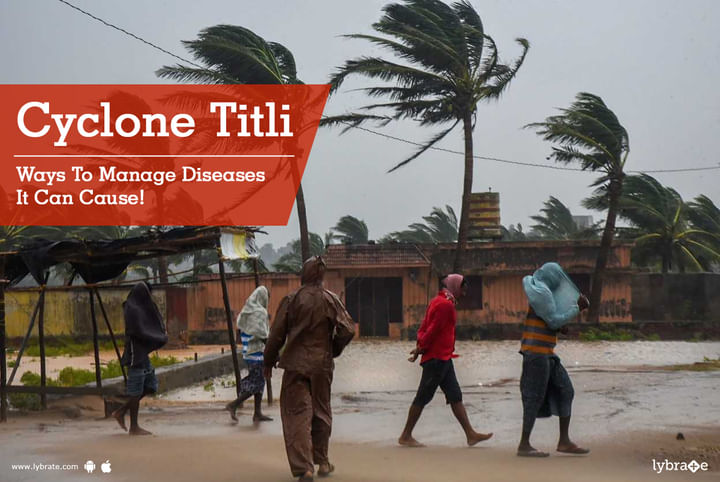Cyclone Titli - Ways To Manage Diseases It Can Cause!
Cyclone 'Titli', which has has been categorised as a 'very severe cyclonic storm', hit the coastal Odisha region at a daunting speed of 140-150 kmph. The cyclone has already caused a lot of destruction in the region and the government has deployed NDRF teams to carry out rescue operations.
Titli, which means 'Butterfly' in English, has uprooted many trees and electricity poles but fortunately has yet not caused any casualties. India Meteorological Department has said that the cyclone will weaken gradually with the decreasing wind speed, but the aftermath of this cyclone can be very unpleasant for the people living near the coastal areas.
Where Titli has created a havoc in India, Hurricane Michael, a category 4 monster storm, has reached Florida. Over half-a-million have been either ordered or advised to evacuate as it inched closer to Panama City. It has already caused 14 deaths in Central America and is still going strong.
Such cyclonic storms and hurricanes not only disturb the normal life during their stay in the region but also lead to spread of various diseases.
Diseases which can spread:
Apart from the risk of serious mental trauma during the cyclonic period, the possibility of spread of water and vector-borne diseases also increase.
Following are the waterborne diseases it can cause:
- Cholera
- Hepatitis A
- Amoebiasis
- Typhoid fever
- Cryptosporidiosis
- Cyclosporiasis
- Giardiasis
- Microsporidiosis
- Naegleriasis
- Botulism
- Campylobacteriosis
- Dysentery
- Severe Acute Respiratory Syndrome
Vector-borne diseases that can spread:
- Chikungunya
- Dengue fever
- Lymphatic filariasis
- Rift Valley fever
- Yellow fever
- Zika
- Malaria
- Lymphatic filariasis
- Japanese encephalitis
- Lymphatic filariasis
- West Nile fever
Ways to prevent Vector-borne diseases:
Once the tragedy ends, people should ignore being in vegetated areas to avoid encounter with insects, like mosquitoes. People should wear protective clothing and avoid using perfumes which may attract mosquitos.
Pregnant women should also try not to go outside their houses during peak times of mosquito activity.
Here are some more preventive measures for vector-borne diseases:
- Apply insect repellents to exposed by body parts as well as clothing
- Do not apply it to wounds or irritated skin
- Take a bath or wash your body after returning home
- Wash the clothes after every single time you go out
- Sleep in netted or screened area
Measures to prevent waterborne diseases:
Waterborne diseases transmit when contaminated water is used for purposes including drinking, washing uncooked vegetables, brushing teeth and washing dentures or contact lenses. Here are the other ways to prevent waterborne diseases:
- Drink purified water only
- If your area has sanitation problems, avoid coming in contact with outside water.
- Do not use untreated water from a spring, river, lake or pond
- Do not always consider boiled water safe for consumption as it does not contain chlorine to avoid recontamination
- Avoid using ice cubes
- Avoid eating outside
- Maintain good hygiene by using soaps and sanitisers
The cyclonic storm will pass off soon but will create several issues that would require proper attention to be prevented. So, after surviving it, you must follow the above-mentioned measures to stay safe and healthy.



+1.svg)
